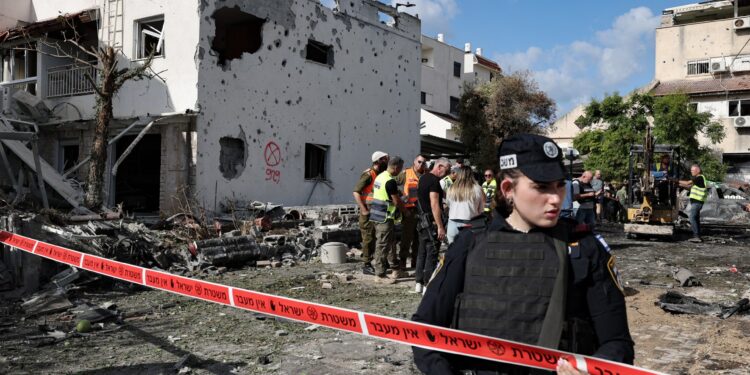The Israeli newspaper Calcalist reported that negotiations under American sponsorship to reach a ceasefire agreement between Israel and Hezbollah in Lebanon have achieved great progress and may culminate in an agreement within a short period.
But this progress was met with harsh criticism from mayors and residents of the northern regions of Israel.
The mayor of Kiryat Shmona, Avichai Stern, described the agreement as a “surrender agreement,” according to Calcalist, stressing that residents will return to devastated areas without real security guarantees.
“We have gone from talking about complete victory to a state of surrender, which puts our population in danger again,” Stern added.
A stifling economic and social crisis
The Calcalist report revealed that about 22,000 residents of Kiryat Shmona have been evacuated since the beginning of the war, leaving the city almost empty.
Commercial activity in the city deteriorated significantly, as more than 70% of small businesses closed, and large factories moved their equipment to safer locations, according to the newspaper.
The report indicated that 68% of the population who may return will not find jobs due to the collapse of economic activity.
Government negligence
Although the government announced the allocation of billions of shekels for the reconstruction of the north, implementation suffers from extreme slowness.
According to the Calcalist report, the government failed to develop a comprehensive plan that meets the economic and social needs of the returning population.
No clear budgets or field plans were put in place to implement the reconstruction, dismaying mayors who described the government’s response as “bureaucratic and ineffective.”
Insufficient compensation
Official data show that the war resulted in more than 2,700 cases of damage in villages near the border with Lebanon, including homes and public facilities.
In areas such as Acre, Tiberias and Haifa, nearly 9,000 cases of damage to buildings, more than 7,000 cases of damage to cars, in addition to about 340 cases of damage to agricultural infrastructure, were recorded, according to Calcalist.
So far, Calcalist said the government has paid compensation worth NIS 140 million (about $37 million), with NIS 2 billion ($550 million) allocated to support indirectly affected businesses.
Mayors expressed their frustration at the absence of a comprehensive plan for reconstruction. The mayor of Kiryat Shmona warned that the agreement might return residents to a fragile security situation similar to the situation before the war.
He stressed that the government missed an opportunity to deal radically with security and social threats. He also called for the establishment of a buffer zone on the border to ensure the security of the population.
The Knesset Finance Committee announced a new compensation package that includes support for businesses in the affected areas, but these compensations sparked controversy due to the reduction in support in areas such as Haifa compared to other areas in the north, according to the same source.



